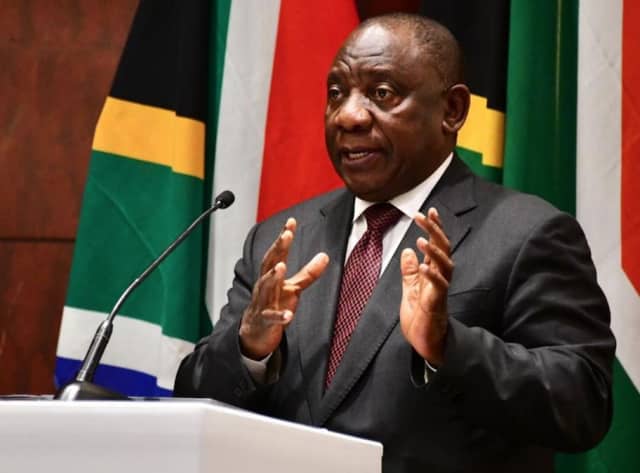President Cyril Ramaphosa on Monday night announced a wide range of solutions to tackle persistent load-shedding including, re-hiring experts, adding renewables, encouraging households to install rooftop solar, and changing laws to allow municipalities to generate power.
“While existing legislation may be sufficient in ordinary times, the current crisis requires that we act decisively and more speedily,” said Ramaphosa in his live broadcast.
“We will therefore be tabling special legislation in Parliament on an expedited basis to address the legal and regulatory obstacles to new generation capacity for a limited period.”
South Africa has installed capacity to produce approximately 46 000 MW of electricity, and at peak times the country uses about 32 000 MW of electricity.
However, only 60% of this installed capacity is available at any given time due to some units going through planned maintenance and others having unplanned outages.
The President, who acknowledged that South Africans were fed-up with persistent outages, said Eskom would augment available energy by buying electricity from neighbouring countries like Botswana and Zambia, which have excess capacity.
South Africa has a shortfall of about 6 000 MW and already imports electricity from Mozambique.
Ramaphosa said there was significant potential for households and businesses to install rooftop solar and connect this power to the grid.
“To incentivise greater uptake of rooftop solar, Eskom will develop rules and a pricing structure – known as a feed-in tariff – for all commercial and residential installations on its network,” said Ramaphosa.
“This means that those who can and have installed solar panels in their homes or businesses will be able to sell surplus power they don’t need to Eskom.
“We call on all South Africans to use electricity sparingly as we work towards ending load-shedding and getting more energy on the grid.”
Eskom was also recruiting the necessary skills – including former employees – to halt the slide and improve efficiencies.
The president said other issues that affect Eskom’s ability to end load-shedding were its massive debt of nearly R400 billion, theft, and sabotage at power stations.
“Last weekend, I visited the Tutuka Power Station in Mpumalanga, whose performance has been badly affected by criminal activities,” said Ramaphosa..
“We heard of maintenance spares being stolen and sold back to Tutuka and other power stations.
“We were told of ongoing theft of oil on a massive scale and the deliberate damaging of equipment so that Eskom should hire equipment from private contractors.”
The President revealed that: “A number of people have been arrested in recent days and several others are already being prosecuted for corruption and fraud involving Eskom contracts.”
Ramaphosa said last year “we announced” the raising of the licensing threshold to 100 MW.
“This move was widely welcomed. It has unlocked a pipeline of more than 80 confirmed private sector projects with a combined capacity of over 6,000 MW,” said the President.
“We are already working together with industry to accelerate the most advanced projects, several of which are already entering construction.
“These changes have fundamentally changed the generation landscape.”
Ramaphosa urged households to use electricity sparingly.
